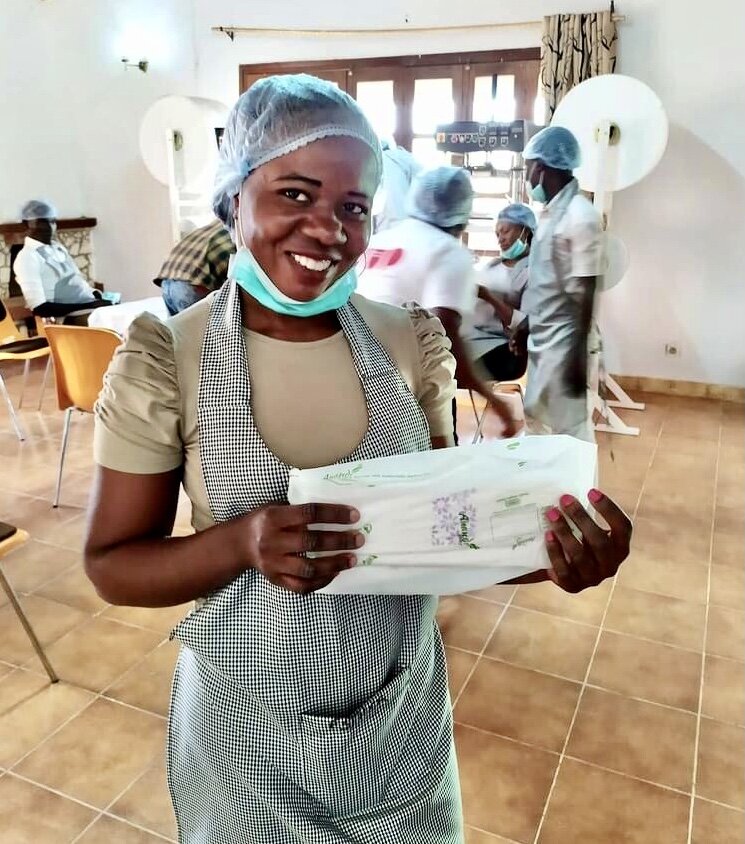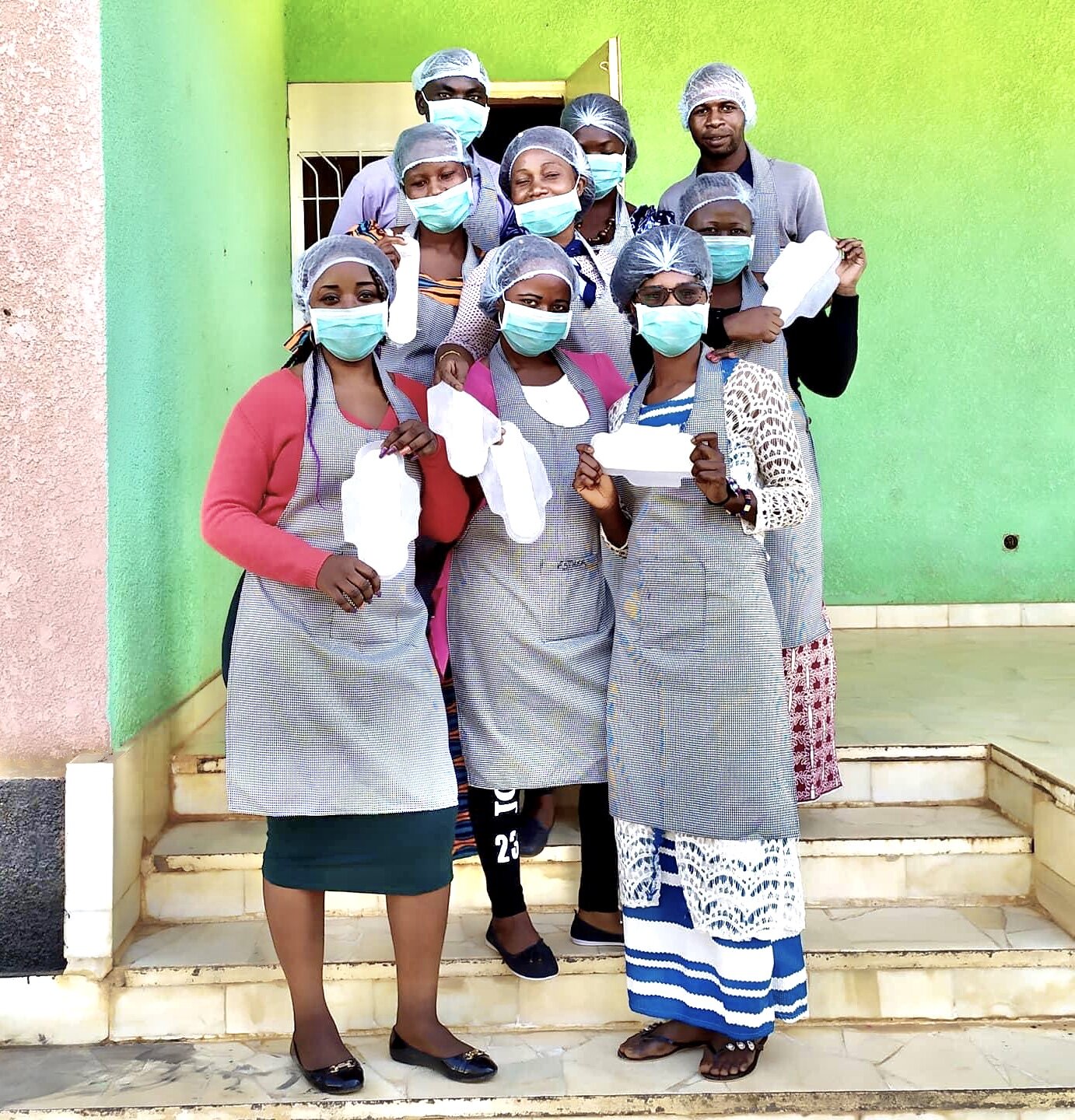Prince Ajume Wingo
Cameroon’s Champion of Women and Peace
Snaking northbound on the rusted Trans-Cameroon Railway, cramped inside a 1960’s first-class sleeper car, Prince Ajume Wingo swats angrily at the Malaria-infected mosquitoes darting in from the dark expanse of jungle outside. Marcel, his personal assistant, sprays the cabin’s interior with a toxic bug repellent that marinates in the sweat beads dancing on Ajume’s bald head. The dashing and diamond-cut Prince, a lauded diplomat hailing from the country’s southwest Nso province, has quickly grown weary of his stifling overnight journey. “This is the last time I will ever ride this train!” declares Ajume, who strives for excellence and virtue in life: from his daily training regime and impeccable clothing selections to his bold humanitarian efforts to empower women throughout the country.
Prince Ajume Wingo in Yaoundé, Cameroon. Photo: Jordan Campbell
“I was raised in a ‘Queendom,’ ” explains Ajume proudly from the cavernous lower bunk of the sleeper car. He’s referring to Queen Ngonnso who founded Nso in 1394, and reigned with authority for years. Inspired by his matrilineal ancestor, and having witnessed profound gender discrimination in Cameroon, the outspoken Prince has broken with conventions of African royalty to become a modern-day champion of women throughout the land. Well-educated and widely respected as a political a social philosopher, Ajume has embarked on a mission to destigmatize female menstruation, an on-going social injustice for young women who are shunned from attending school for days each month. Consequently, young girls remain second-class citizens in Cameroon at a time when women are finally achieving real gains in global gender equality. Ajume’s audacious vision: build a facility in the north, operated by local women, that produces biodegradable sanitary napkins for its female citizens. The goal: raise consciousness about menstruation and transform women’s lives in Cameroon and greater Africa.
Smartly dressed women headed north on the Trans-Cameroon Railway. Photo: Jordan Campbell
Sixteen-hours later, Ajume arrives at the bustling train station in Ngaoundéré. It’s here in this nondescript town, on the arid southern edges of the great Sahara, where he hopes to launch a Pride Pads production facility, a future touchstone for Cameroonian women to find work, community, improved social and economic status. Marcel grabs Ajume’s bags and punches through the crowded railway station where local women donning brightly colored dresses blend among incoming refugees from Nigeria, Chad and Central African Republic, escaping Ebola and Boko Haram. At his hotel later that afternoon, Ajume knocks out his mandatory 100 push ups and showers off the long journey while Marcel carefully irons his white shirt. He has a meeting with the King of Ngaoundéré later today and will ask for his support to help advance the proposed Pride Pads facility. Marcel helps Ajume put on his tie in front of the mirror: “We will make a wonderful impression on the King today,” Ajume explains confidently with his signature toothy smile.
Pride Pads Africa video, featuring Mankefo Amandine Angwe and Prince Ajume Wingo
But with all of Ajume’s diplomatic connections to bring about change, Cameroon remains a country affected by a civil war: a lethal conflict between Anglophone separatists and Francophone loyalists is taking place in Ajume’s homeland of Nso. The escalating conflict, born from colonial English and French, has evolved into a national fight over social justice, education, voting rights and governmental reform. In 2016 the split turned deadly and an estimated 3000+ people have since been killed with at least 730,000 people displaced, creating dangerous instability throughout the province. While Ajume has been unable to return home in nearly four years—in 2016 he was ordered off the Trans-Cameroon Railway near Kumbo by Anglophone separatists at gunpoint—it’s also no surprise that he has found himself as a national peace broker to help find a resolution to the conflict. Tapped by top government officials in the capital of Yaoundé to help spearhead peace negotiations, Ajume continues to lead bold conflict resolution discussions through next-level thinking—from his home in Colorado to Washington D.C. and London.
At the Pride Pads facility, Esther shows off her first package of produced pads. Photo: Derek Gerleit
Flash forward: Despite the ongoing conflict and the enormous challenges brought about from of the COVID-19 pandemic, the Ngaoundéré Pride Pads facility has been producing thousands of biodegradable sanitary pads and employing local women for months. Regional educational efforts around menstrual and sexual health are also already well underway—gains that will embolden the next generation of Cameroonian women. While all of these initiatives are most certainly nascent, Ajume’s audacious vision, which has been fortified through the organizational muscle of PridePadsAfrica in Boulder, Colorado, has now become a shining reality. With Cameroon’s COVID-19 travel restrictions loosening, Ajume will soon return to his country. It’s a chance to visit the young girls and women of Ngaoundéré who are committed to a lofty social mission and the new authors of self-determination in a changing world order.
The Ngaoundéré team on the first day of production. Photo: Derek Gerleit
Jordan Campbell is a freelance writer and the founder of Ramro Global. He has covered global health initiatives and humanitarian stories for National Geographic, Men’s Journal and other publications. Sources: Foreign Policy, International Crisis Group, The New York Times




